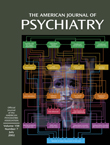Impact of Narcissism: The Errant Therapist on a Chaotic Quest
Peter Giovacchini has written a brilliant book that elaborates and highlights the area of narcissism not only in the patient but also in the therapist. Narcissism is a topic that has not gotten sufficient attention in dynamic psychotherapy, and this book fills that void. Giovacchini also traces the history of changes in psychoanalytic thinking from Freud to the present. Paradoxically, psychoanalytic thinking is a journey back in time as well, from Oedipus to Narcissus. The emphasis now is not on the Oedipus complex but on preoedipal development and the formation of psychic structure, especially self-representation. Giovacchini is critical of those classical analysts who idealized Freud and resisted any advancement in theory or technique. He briefly reviews the contributions of Melanie Klein, W.R.D. Fairbairn, Karen Horney, Erik Erikson, Frieda Fromm-Reichmann, Abram Kardiner, Franz Alexander, Otto Kernberg, and others. This provides a foundation for the rest of the book.
The book notes that there has been a tendency in some psychiatric quarters to be reductionistic and to polarize factors responsible for producing psychopathology as being either environmental, psychological, or biological. Clearly, all these areas are important and interact. Giovacchini not only highlights intrapsychic dynamics but also explores relational and cultural forces and their impact on personality. He makes an important point that intrapsychic dynamics play a strong role in humanizing treatment. His approach is based on object relations theory, especially the work of D.W. Winnicott. Giovacchini repeatedly discusses the transference-countertransference relationship, especially the projection onto the therapist and onto others of split-off aspects of the self. Giovacchini’s therapeutic approach is in agreement with my psychoanalytic work (1), based on object relations, in which aspects of the self or object representation are placed through projective identification into family members and the therapist. I disagreed with one chapter in the book, in which Giovacchini criticizes Heinz Kohut and self psychology, although Kohut’s claim for originality did not acknowledge the previous contributions of others such as Sandor Ferenczi and Franz Alexander. Giovacchini speculates that the two analyses of Mr. Z published by Kohut were about himself and not a patient. However, Kohut also emphasized preoedipal development and the importance of “relationships” both during early childhood and in therapy. I think that Kohut’s most important contribution is that he raised the temperature of the therapeutic setting from cold to warm, which was an important contribution to patients suffering personality disorders.
This book should prove to be of very practical use to the dynamic psychotherapist, since Giovacchini’s sensitive treatment of patients is demonstrated by a wealth of actual clinical case material and vignettes. He discusses a number of difficult cases treated in a very skillful and instructive manner. He has not simply written a general cookbook that encourages thoughtless compliance; rather, he recognizes the need of the therapist to be aware of each patient’s uniqueness. For example, he discusses the use of silence in patients, which has often been considered as simply representing resistance. He notes that silence may also be a manifestation of withdrawal for survival or the testing and establishment of autonomy. Impact of Narcissism is highly recommended for both beginning and experienced therapists. It is a rich feast presented by a master clinician.
1. Slipp S: Object Relations: A Dynamic Bridge Between Individual and Family Treatment. Northvale, NJ, Jason Aronson, 1984Google Scholar



